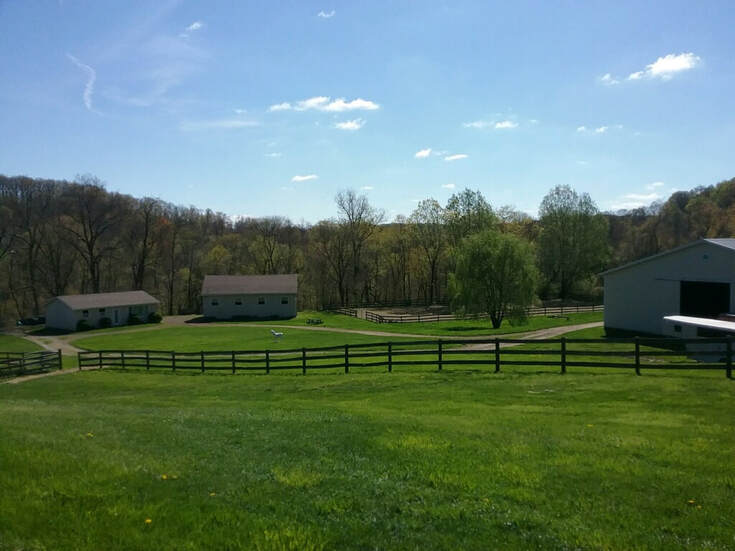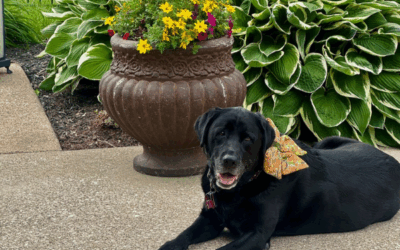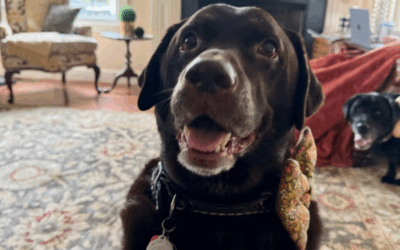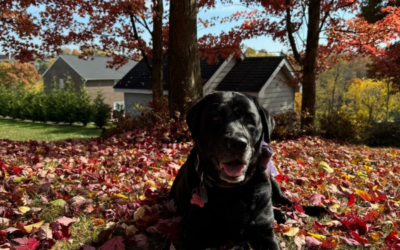Horse Ownership

I typically blog about dog related topics but today I want to give you some insight into the equestrian world. One of my fondest memories from my childhood was when my parents bought me my first horse. We found Sparky and so my love for horses began. My father built a barn and fenced in acreage to adopt Sparky and a horse for my sister named Shamrock. We later started working on a farm and adopted 2 baby cows named JR and Red. They all passed away of old age but our love for these animals has never died.
I have had the privilege of knowing my friend Renee since grade school. We have always shared the same love for horses but she has turned her love and passion into a business of showing, competing, training, educating, and boarding which I am so very proud of her. I had the opportunity to sit down with Renee for an interview to get the skinny on horse ownership and here I am to share her most common asked questions about business and what it is like to own a horse.
How long have you had horses?
We laugh and she jokes that she has had horses since the day she was born. It’s true. I don’t think I’ve ever known her when she did not have a horse of her own. She says: I turned my passion into a business in 1993 including 16 stalls and currently boarding 8 horses not including 2 of my own.
What is the biggest misconception of horse ownership?
People think that it is a big dog. Totally not the truth. They get treated like dogs and do not respond to that treatment in a manner that will be beneficial to their training. The dog is a predator and the horse a prey animal and they respond differently to training and handling.
What is the average cost to board a horse?
Most people are going to board horses anywhere from $400.00 on up.
What are the essentials for owning a horse? (I had jotted down a few notes but did my research to give you a more detailed description of the essentials).
Besides the basics like a saddle, harness, and brush, a responsible owner should provide:
- Saddle with girth or cinch.
- A saddle pad or blanket.
- Bridle.
- Helmet.
- Safety Stirrups or boots with a one-inch heel.
- A shelter (natural or man-made) of sufficient size (at least 150 square feet per equine) that offers the equine a means of avoiding severe weather (extreme temperatures over 100°F or under 20°F, freezing rain, etc.).
- An area free of hazardous equipment, refuse, or obstacles that allows the equine ample space to exercise freely.
- A fence at least 4.5 to 6 feet high.
- Disposal of, on a daily or weekly basis, the 50 lbs of manure per day the horse produces in order to maintain sanitary conditions and prevent problems with odor, flies, etc.
- Access to a vehicle (pickup truck and livestock trailer) to transport the equine in an emergency.
- Hay and grain feeders, water troughs, stable- cleaning supplies, grooming tools, tack, and enough space to store all of these safely.
- A horse requires 10 to 12 gallons of clean, fresh, drinkable water each day.
- An average-sized horse will require at least 16 to 22 lbs of hay and/or grain per day to keep itself in good condition.
- The feet, or hooves, need to be trimmed every 8 to 10 weeks to ensure proper hoof care.
- Horses harbor internal parasites, so they require treatment (deworming) for these at least once every 6 months or more.
- Horses, like most animals, require annual vaccination to prevent contagious diseases.
- As the horse gets older and around 10 years of age, it’s best to get their teeth cleaned and vet checkups for optimal health.
Are there any legal restrictions to owning a horse?
Your land needs to be agriculturally zoned in order to have a horse. Owners should be aware of local/county ordinances (zoning, number of equines allowed per acre, care requirements, etc.) that may apply to equine ownership in their community.
What is spot zoning?
Basically, it is not feasible. Basically illegal. You have to fight your township which is an uphill battle.
What qualifications do you look for in a vet?
Besides having a good reputation, you have to find an Equine veterinarian who is experienced in horses. Should your horse need extensive surgery or overnight stays, an Equine Specialty hospital such as The Centaur Equine Specialty Hospital located in Shelbyville, IN, and The Equine Specialty Hospital in Burton, OH. You must have insurance on your horse due to the extensive cost. Insurance is based on two groups: Professional horse ownership (ie, showing and competing) and basic meaning owning a horse to keep as a pet.
How do you help someone who wants a horse as a pet vs professionally for competitive reasons?
For someone who wants to own a horse as a pet, I recommend they do a lease possibility or take a lesson program to make sure this is right for them. For someone who is interested in owning professionally, it depends on the sport whether it be eventing and dressage.
What characteristics do you look for in determining the value of a horse?
For competition – event horse: Bravery, jumping ability, longevity (stays sound), trainability.
Dressage – movement and trainability.
If you are nervous, can a horse sense your anxiety when riding?
Yes
What is the average cost of training a horse?
The prices range $1,000/month depending on what the horse needs.
What are the tell tail signs a horse is sick and what to look for?
Lethargic, not keeping weight on, eyes and runny nose. Colic is the number one killer of horses.
How do you know if your horse might have Colic?
If your horse is trying to look at its stomach a lot and wanting to roll and lay down.
What was the one horse that changed your life or you have the fondest memories of?
So many were so good in their own way. Each horse has their own personality. My horse, Alianna, was top in the country for eventing, top of the leader board, number one of her breed in the country in 2009. She made the American Eventing Championships in two shows which is the least amount you can do it in.
The average life of a horse can be 20 to 30 years. If you are thinking of owning a horse, you might want to take the advice given and sign up for a riding program or a lease program to see if horse ownership is right for you. The same goes for all animals. It’s best to either volunteer first at a local shelter or get involved in a program for that specific animal to see if it is right for you, your family and your lifestyle.
Horses are amazing animals that can provide much love and also take much time, financial expense, and dedication. Thank you again to my friend for helping with this post and to educate us on the equestrian life. She was kind enough to send me a picture of her beautiful farm (see above). Renee has dedicated her life to saving (many from slaughter), caring for and training horses.

You Might Also Like
What To Do If Your Dog Gets Bit By A Venomous Spider
Happy Wednesday, everyone! I was sitting on our back patio a few nights ago watching Jake watch a spider crawl in front of him. This gave me an idea for a blog post on spiders and What To Do If Your Dog Gets Bit By A Venomous Spider. Fortunately, Jake didn't make a...
Pet Cloning: What Is It And How Does It Work?
Happy Wednesday, everyone! Pet Cloning…What is it, and how does it work? I recently found an article in Modern Dog Magazine, “Meet Mella, The Cloned Winery Dog,” about how a California winery spent $50,000 cloning their dog. Before reading the article, I had two...
What Spring Weather Will Reveal About Your Home
Happy Wednesday, everyone! What Spring Weather Will Reveal About Your Home. Spring weather can be quite the revealing element! After weathering the winter out, with all the cold, rain, and dryness it brings, blooming into spring will highlight everything wrong with...




0 Comments